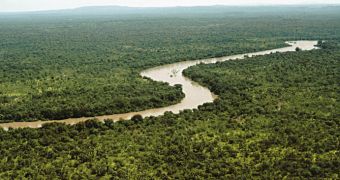NASA relies on a computer modeling study to demonstrate that climate change would generate dramatic environmental changes by 2100.
Experts from NASA's Jet Propulsion Laboratory and the California Institute of Technology in Pasadena, California have succeeded in highlighting how land-based ecosystems, like forests, tundras or grasslands would suffer radical transformations linked to global warming effects over the next three centuries, Science Daily informs.
Their findings are published in journal Climatic Change and suggest that all surfaces of land would experience a 30% change in plant cover, powerful enough to force people and animals relocate and adapt to survive.
NASA's study also reveals the impact of climate change on water supply, biodiversity and endangered species. It seems that plans and animals are already scaling up efforts to survive, by migrating and trying to find more suitable conditions favoring their development.
Experts behind this study reveal that human activities, like deforestation or expanded urbanization are blocking their survival strategies.
Far from being vague and strictly hypothetical, the report is based on actual greenhouse gas estimations provided by United Nations' Intergovernmental Panel on Climate Change Fourth Assessment Report.
The numbers suggest the amount of GHG would double by 2100, while global temperatures would increase by up to 7.2 degrees Fahrenheit (up to 4 degrees Celsius).
If the forecast is accurate, the anticipated phenomenon would trigger effects comparable to those generated by the Last Glacial Maximum experienced 20,000 years ago.
This would imply that some regions would become arid and other wetter because of increased evaporation. Some of the regions most exposed to dramatic changes are Madagascar, the Himalayas and the Tibetan Plateau, the Mediterranean region, southern South America, the Great Lakes from North America and Great Plains areas, according to the study issued by NASA.
"The surprising degree of ecological sensitivity of Earth's ecosystems predicted by our research highlights the global imperative to accelerate progress toward preserving biodiversity by stabilizing Earth's climate," notes Jon Bergengren, of the the leading authors of this study.

 14 DAY TRIAL //
14 DAY TRIAL //